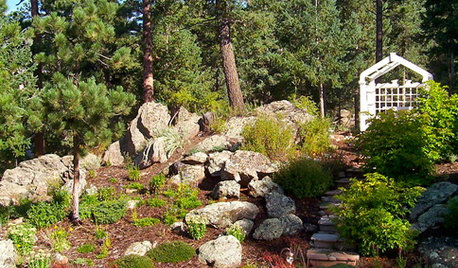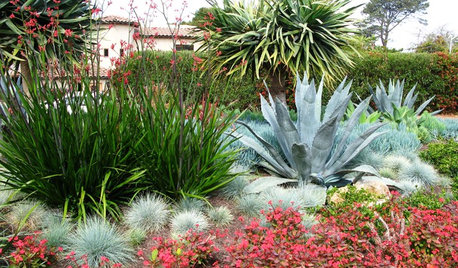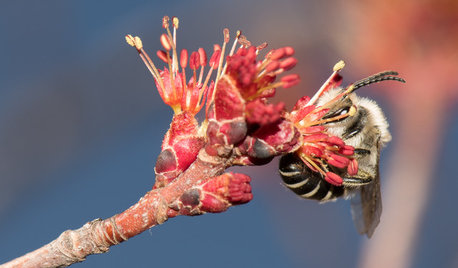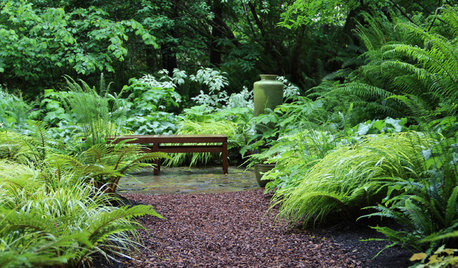do all vegetables like sandy soil?
kawaiineko_gardener
12 years ago
Related Stories

GARDENING GUIDESHave Acidic Soil in Your Yard? Learn to Love Gardening Anyway
Look to acid-loving plants, like conifers and rhododendrons, to help your low-pH garden thrive
Full Story
GARDENING GUIDESGardening Solutions for Dry, Sandy Soils
Has your desert or beachy site withered your gardening creativity? Try these ideas for a beautiful, easy-care landscape
Full Story
GARDENING GUIDESInvite Cellophane Bees to Your Garden by Providing Patches of Bare Soil
Look for cellophane bees (Colletes) pollinating flowering trees and shrubs in U.S. gardens this spring
Full Story
GARDENING GUIDESThe Poop Scoop: Enrich Your Soil With Good Old Manure
Get over the ick factor already — this natural super-ingredient for soil has so many benefits, you'll wonder why you ever went chemical
Full Story
GARDENING GUIDESHow to Stop Worrying and Start Loving Clay Soil
Clay has many more benefits than you might imagine
Full Story
GARDENING GUIDES10 Solutions for Soggy Soil
If a too-wet garden is raining on your parade, try these water-loving plants and other ideas for handling all of that H2O
Full Story
FARM YOUR YARDHow to Get Good Soil for Your Edible Garden
The nutrients in your soil feed the plants that feed you. Here are tips on getting it right — just in time for planting season
Full Story
GARDENING GUIDESHouzz TV: Make a Worm Bin for Rich Soil and Happy Plants
A worm-powered compost bin that can fit under a sink turns food scraps into a powerful amendment for your garden. Here’s how to make one
Full Story
GARDENING GUIDESGet the Dirt on Your Garden’s Soil
Understand how your soil supports your plants so you can ensure your garden’s success
Full Story
GARDENING GUIDESGardening Solutions for Heavy Clay Soils
What’s a gardener to do with soil that’s easily compacted and has poor drainage? Find out here
Full Story






gjcore
kawaiineko_gardenerOriginal Author
Related Professionals
Beavercreek Landscape Architects & Landscape Designers · Panama City Landscape Architects & Landscape Designers · Southfield Landscape Architects & Landscape Designers · Waunakee Landscape Architects & Landscape Designers · Pelham Landscape Contractors · Bell Gardens Landscape Contractors · Bridgeport Landscape Contractors · Deer Park Landscape Contractors · Eureka Landscape Contractors · Kailua Landscape Contractors · Fremont Driveway Installation & Maintenance · Grand Rapids Driveway Installation & Maintenance · Hockessin Driveway Installation & Maintenance · Rehoboth Driveway Installation & Maintenance · Skokie Driveway Installation & Maintenanceoregonwoodsmoke
digdirt2
digdirt2
jimster
glib
taz6122
kawaiineko_gardenerOriginal Author
oregonwoodsmoke
pnbrown